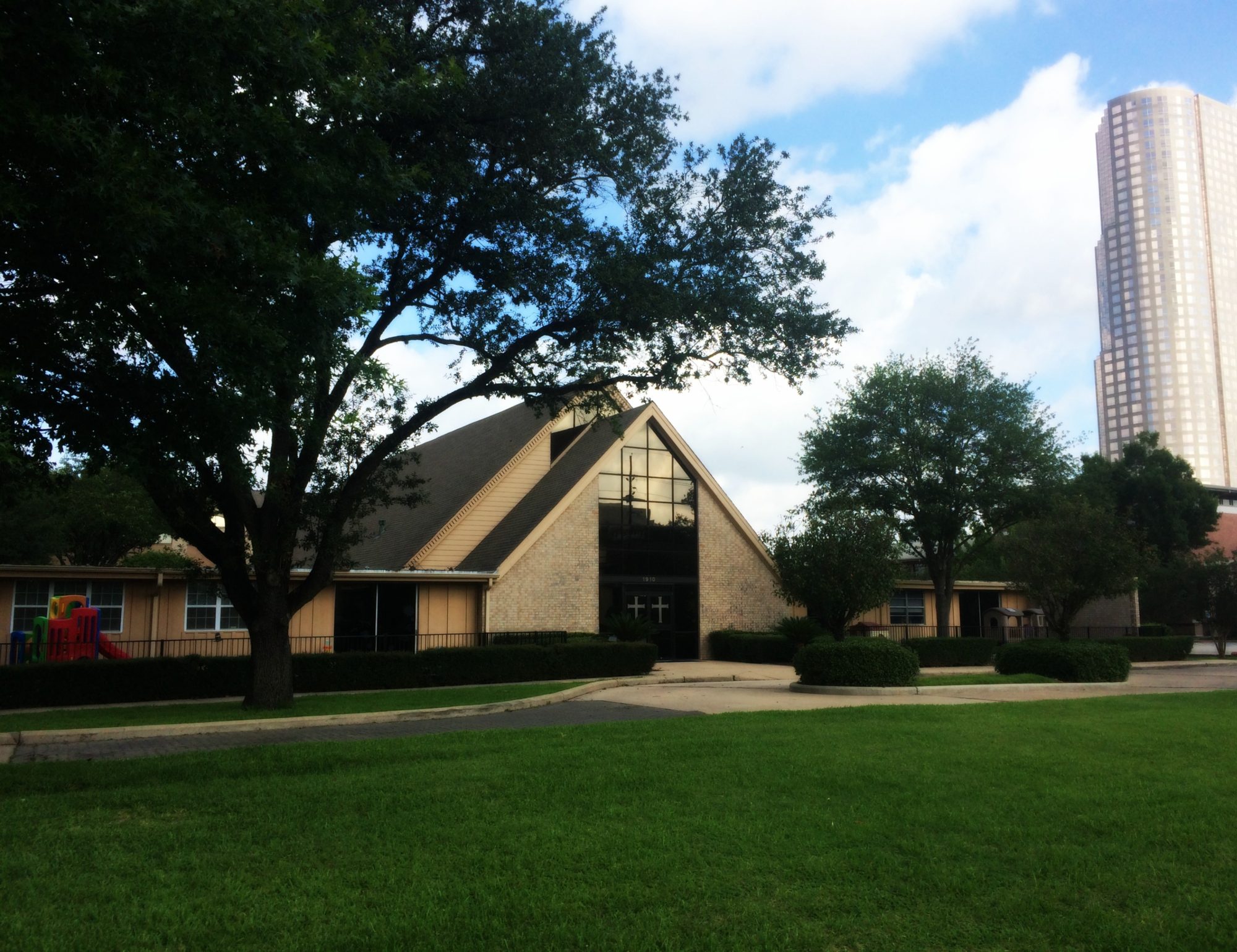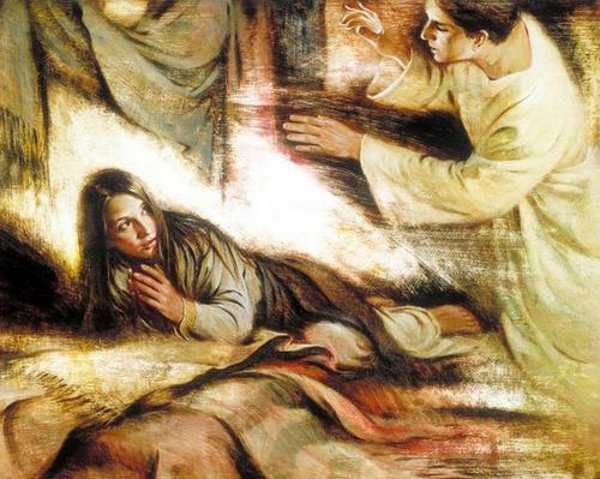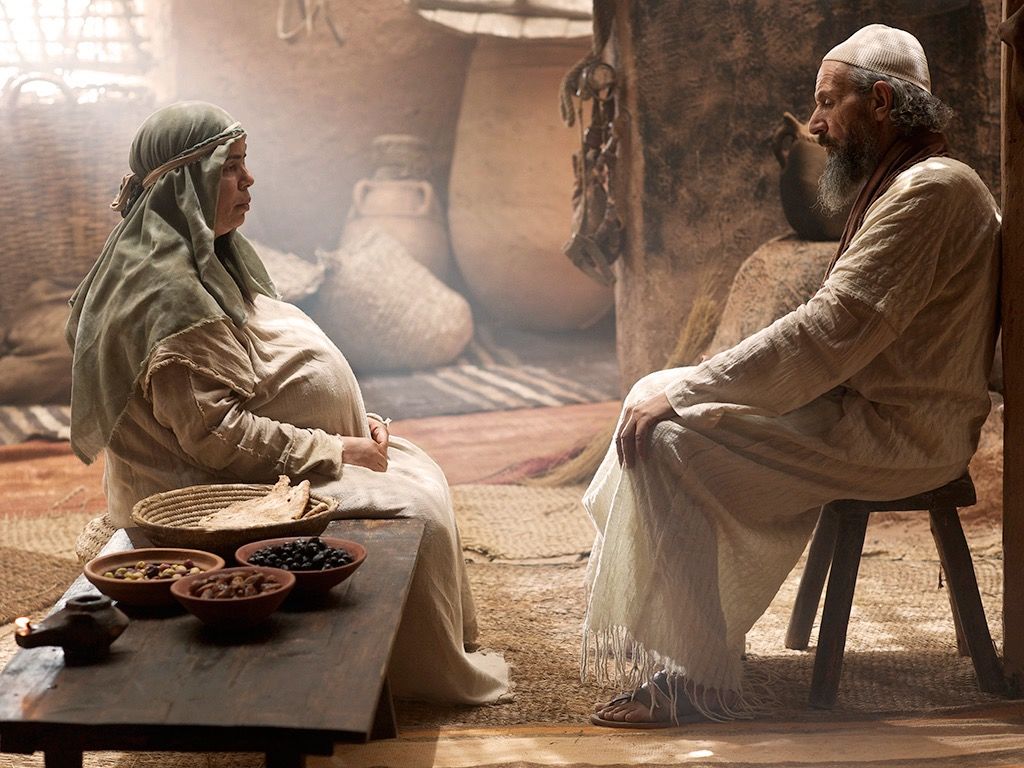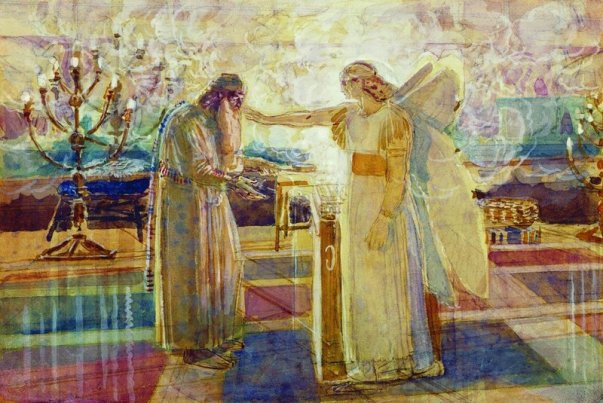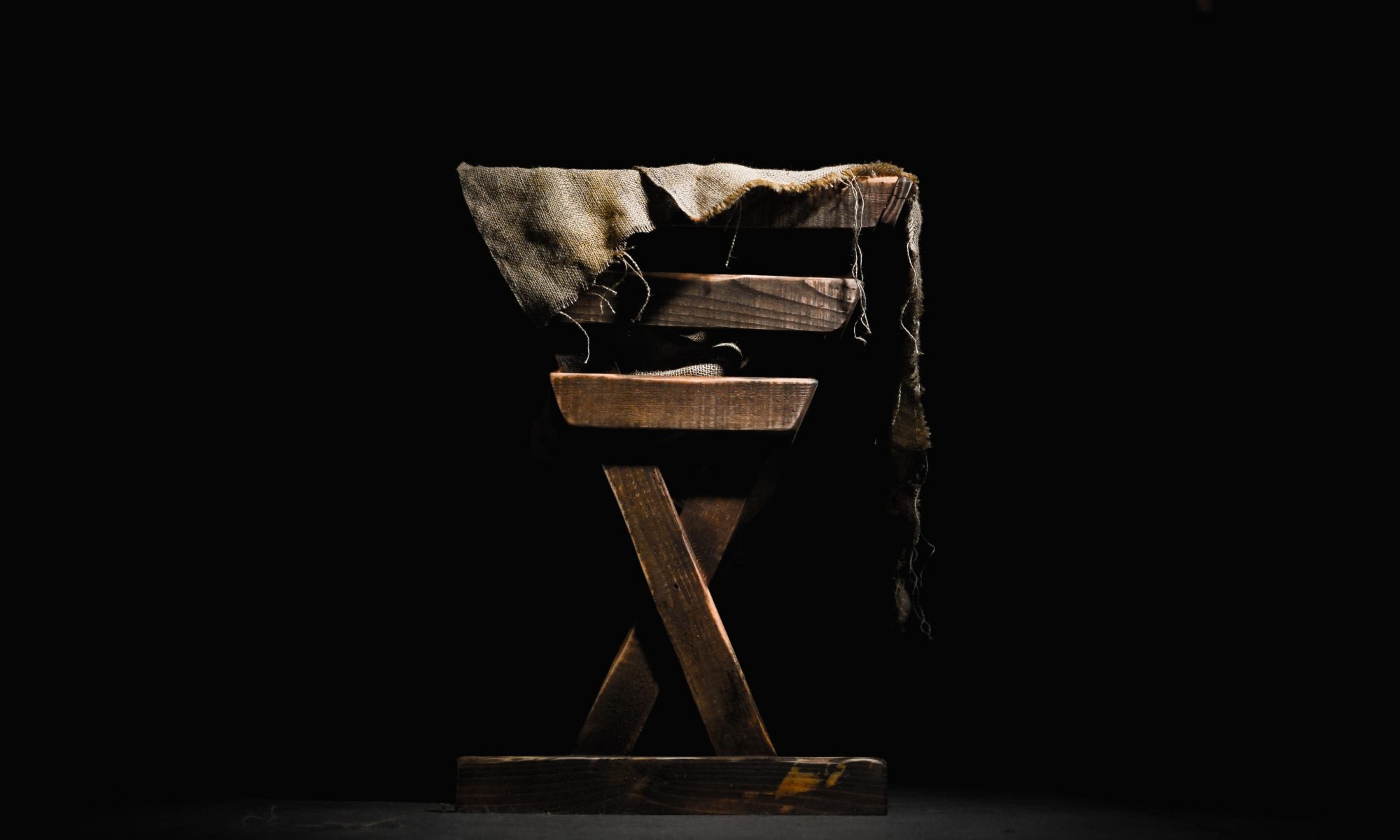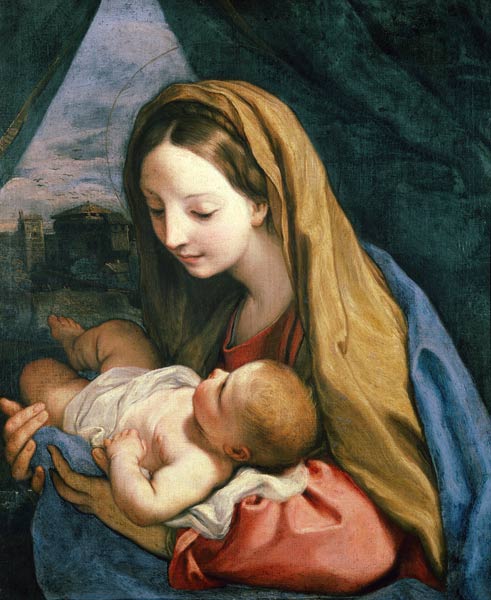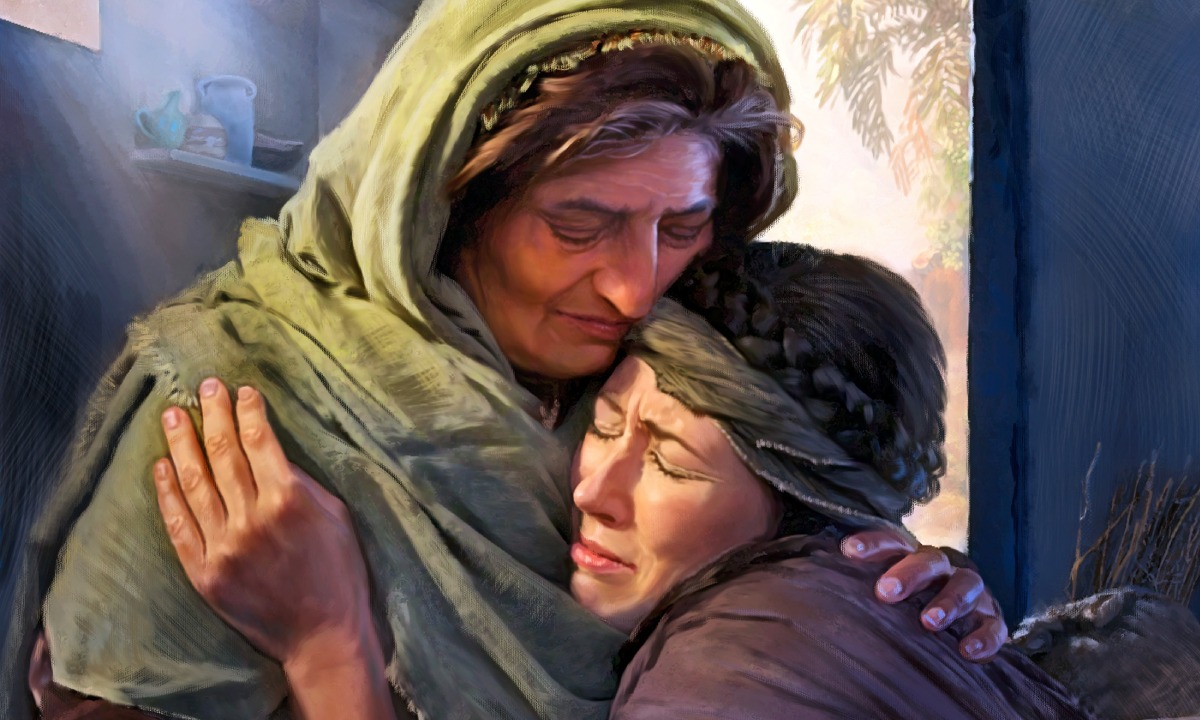“In the sixth month the angel Gabriel was sent by God to a town in Galilee called Nazareth, to a virgin engaged to a man whose name was Joseph, of the house of David. The virgin’s name was Mary. And he came to her and said, “Greetings, favored one! The Lord is with you.” But she was much perplexed by his words and pondered what sort of greeting this might be. The angel said to her, “Do not be afraid, Mary, for you have found favor with God. And now, you will conceive in your womb and bear a son, and you will name him Jesus. He will be great, and will be called the Son of the Most High, and the Lord God will give to him the throne of his ancestor David. He will reign over the house of Jacob forever, and of his kingdom there will be no end.” Mary said to the angel, “How can this be, since I am a virgin?” The angel said to her, “The Holy Spirit will come upon you, and the power of the Most High will overshadow you; therefore the child to be born will be holy; he will be called Son of God. And now, your relative Elizabeth in her old age has also conceived a son; and this is the sixth month for her who was said to be barren. For nothing will be impossible with God.” Then Mary said, “Here am I, the servant of the Lord; let it be with me according to your word.” Then the angel departed from her.” Luke 1:26-38
Echoes of God’s Faithfulness
By Cale Ownby
Samuel searched until he found the old house where the young David lived. He sought out David in order to share the message of God’s favor. It was not the first time a messenger from God would seek out a child to share this message, and it wouldn’t be the last. Years later, we find David receiving the promise from God, “I will raise up your offspring, and I will establish my kingdom.” As we hear God’s promise, we can hear echoes of a generation before—a promise with Abraham, and echoes of a generation later—a promise with Mary.
This brings us to the gospel of Luke. Imagine Gabriel seeking out young Mary, saying, “You will give birth to a son, and His kingdom will never end.” We hear the echoes from the past get louder. “How can I have a child?,” we hear Mary ask, and we are reminded of laughter from Abraham and Sarah.
In Mary’s story, we see God’s faithfulness echo back through David’s sin, through Abraham and Sarah’s doubt. When Mary replies to Gabriel, “I am the Lord’s servant; may your word to me be fulfilled,” the people of God are faithful. Echoes of the rooster crowing and of Peter confessing. This confession of God’s faithfulness covers David, it covers Abraham and Sarah, and it covers the times when we ourselves are not faithful—in the past and in the future.
